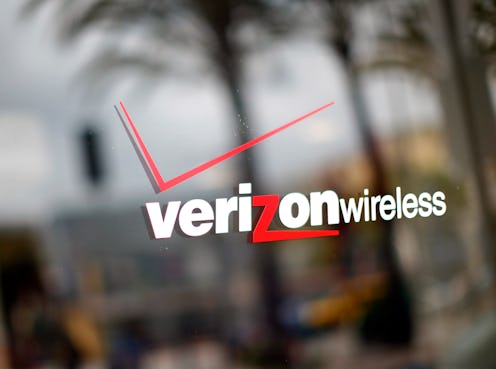News
Netflix Vs. Verizon: The Saga Continues
Netflix and Verizon are back to feuding, and this time the claws are really out. In mid-May, Netflix began issuing customers a message that blamed the video's buffering on Verizon's congested network; on Thursday, Verizon shot back by sending Netflix a cease-and-desist letter. This isn't the first time the two companies have had beef: Tensions reached fever pitch in February when Verizon was accused of intentionally slowing down Netflix content.
Those allegations against Verizon came after a federal appeals court struck down the FCC's net neutrality rules, meaning that Internet service providers like Verizon are not legally prohibited from slowing down access to certain sites. Since then, Netflix has seen such slow speeds at times that customers found it almost "unusable" while unable to find proof of Verizon's deliberate "throttling."
Even if Verizon was slowing down Netflix content on purpose, what do they have to gain? Well, money, obviously. Since more than a third of traffic sent to North American homes during peak evening hours comes from Netflix, the sheer amount of bandwidth needed to accommodate this kind of traffic is substantial. And each side thinks the other should pay for infrastructure upgrades that would better accommodate the heavy data. Verizon won this round.
Recently, Netflix made deals with both Verizon and Comcast to improve streaming speed on their networks. But that doesn't mean all is dandy now. The feud between Netflix and Verizon picked right up again when the streaming giant started displaying this message to certain customers.
Let's take a look at the whirlwind drama that followed in the next few days. It's almost enough to warrant its own reality show. (To be streamed on Netflix, of course.)
June 3
Yuri Victor, a designer and developer at Vox, screen captured the message and tweeted it.
June 4
Reports start flying about Netflix's blame game.
"We are testing ways to let consumers know how their Netflix experience is being affected by congestion on their broadband provider's network," Netflix spokesman Joris Evers told The Huffington Post. "At present, this is a small test in the United States that is not specific to any provider."
Verizon responds and denies Netflix's claim in a blog post that calls the message a "PR stunt." The blog entry also states:
This claim is not only inaccurate, it is deliberately misleading.
The source of the problem is almost certainly NOT congestion in Verizon’s network. Instead, the problem is most likely congestion on the connection that Netflix has chosen to use to reach Verizon’s network. Of course, Netflix is solely responsible for choosing how their traffic is routed into any ISP’s network.
June 5
Verizon sends Netflix a cease-and-desist letter, demanding that the streaming company stop displaying the message and also asking for a list of Verizon customers who were shown the message. Failure to do so on Netflix's part would lead Verizon to take legal action.
Netflix responds to Verizon's response: "This is about consumers not getting what they paid for from their broadband provider," Netflix spokesman Jonathan Friedland told CNBC. "We are trying to provide more transparency, just like we do with the ISP Speed Index, and Verizon is trying to shut down that discussion."
Verizon's blog post from Wednesday concludes with this:
It is sad that Netflix is willing to deliberately mislead its customers so they can be used as pawns in business negotiations and regulatory proceedings.It would be more accurate for Netflix's message screen to say: “The path that we have chosen to reach Verizon’s network is crowded right now.”
However, that would highlight their responsibility for the problem.
Like Yuri said, oh snap!
While there is no clear winner in this feud, one thing is clear: even the biggest corporations can act like a bunch of teenage girls.
